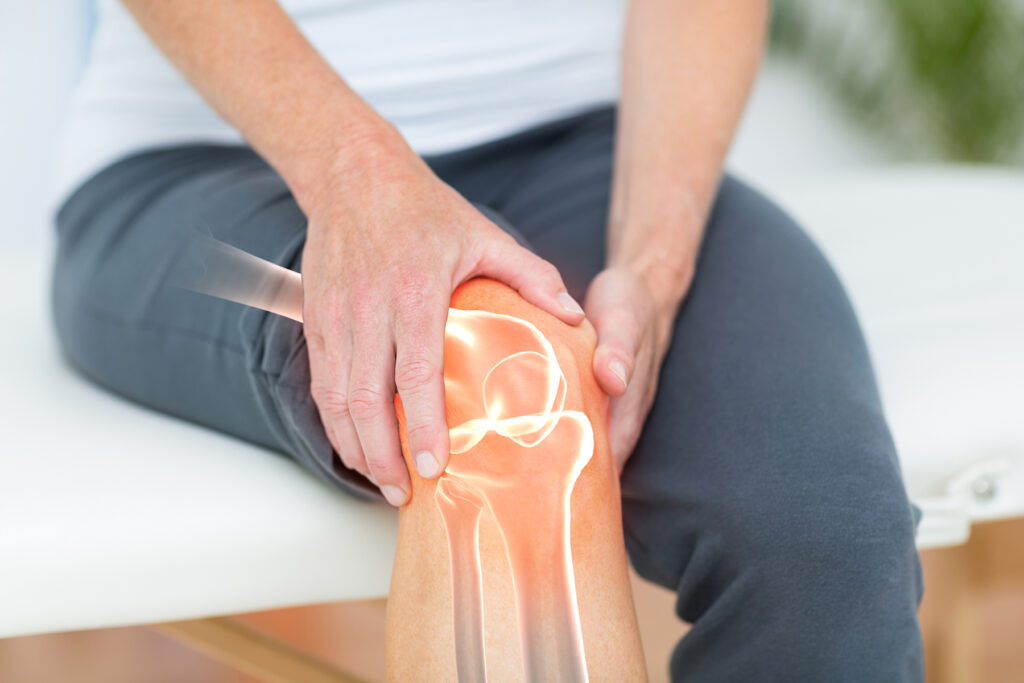Vitamin D is a crucial nutrient that helps the body absorb calcium and maintain strong bones. However, many people are deficient in this essential vitamin without even realizing it. Symptoms of vitamin D deficiency can be subtle but can have serious consequences if left unaddressed.
In this article, we will highlight seven serious signs and symptoms of vitamin D deficiency that you should not ignore. We will also discuss the importance of vitamin D, its role in the body, and how to prevent and treat a deficiency.
Key Takeaways:
- Vitamin D deficiency can lead to a range of symptoms, including fatigue, joint pain, hair loss, and weakened immune function.
- The best way to prevent and treat vitamin D deficiency is through a combination of sunlight exposure, dietary changes, and vitamin D supplements.
- Regular testing is recommended to monitor vitamin D levels and prevent complications associated with deficiency.
- Early detection and treatment of vitamin D deficiency can help prevent serious health problems in the long term.
The Importance of Vitamin D

Vitamin D plays a crucial role in many bodily functions. It helps the body absorb calcium, which is essential for bone health. It also plays a role in muscle function, immune system regulation, and reducing inflammation. Despite its importance, many people experience a vitamin D deficiency, which can lead to a range of negative symptoms.
A vitamin D deficiency can occur due to a variety of reasons. Some people may not get enough sunlight exposure, which is necessary for the body to produce vitamin D. Certain medical conditions or medications can also impact the body’s ability to absorb vitamin D properly. Symptoms of a vitamin D deficiency can be subtle and easily overlooked, but can become serious if left untreated.
Recognizing the symptoms of vitamin D deficiency is the first step in correcting the issue. Some common symptoms include fatigue, bone and joint pain, muscle pain and cramps, mood changes, impaired wound healing, hair loss, and weakened immune system.
In the following sections, we will delve deeper into each of these symptoms and explain why they can occur due to a vitamin D deficiency. We will also discuss how to test for and treat a vitamin D deficiency to prevent further problems.
Sign 1: Fatigue and Weakness

Vitamin D deficiency symptoms can contribute to feelings of exhaustion and weakness. Research suggests that a lack of this essential vitamin may impair muscle function and lead to decreased strength (Harvard Health Publishing). Vitamin D plays a crucial role in the conversion of food into energy, as well as in the regulation of calcium necessary for muscle contraction. Without sufficient levels of vitamin D, fatigue and muscle weakness can set in, and daily activities can become more challenging.
In some cases, vitamin D deficiency can also result in chronic fatigue syndrome (CFS), a condition characterized by extreme fatigue that is unrelieved by rest. Studies have suggested that low levels of vitamin D may be a contributing factor in the development of this illness (Verywell Health).
The symptoms of fatigue and weakness caused by vitamin D deficiency can be debilitating and may interfere with daily life. Seeking medical advice is crucial to identify and manage vitamin D-related issues.
Sign 2: Bone and Joint Pain

A lack of vitamin D can have serious implications for bone and joint health, leading to pain, weakness, and even deformities in severe cases. Vitamin D plays a crucial role in the body’s ability to absorb calcium, a vital mineral for bone health.
Low vitamin D levels can result in weakened bones, increasing the risk of fractures and breaks. Joint pain and stiffness can also occur, particularly in the lower back, knees, and hips.
Research suggests that vitamin D supplementation can improve bone mineral density and reduce the risk of fractures in individuals with low vitamin D levels. However, it’s important to seek medical advice before starting any kind of supplementation regimen.
Sign 3: Muscle Pain and Cramps

Vitamin D plays a crucial role in maintaining healthy muscle function. When the body lacks sufficient vitamin D, it can lead to muscle pain and cramps. This is because vitamin D is involved in regulating calcium levels, which is essential for muscle contraction and relaxation.
Low vitamin D levels can cause an imbalance in calcium levels, causing the muscles to work harder than necessary, leading to muscle fatigue and pain.
Vitamin D deficiency can also result in muscle weakness and impaired balance, increasing the risk of falls, particularly in older adults.
It’s important to note that muscle pain and cramps can have many causes, and vitamin D deficiency is just one of them.
However, if you’re experiencing muscle discomfort and have other vitamin D deficiency symptoms, it’s worth getting tested for low vitamin D levels.
While getting enough vitamin D from sunlight and food sources is essential, most people don’t get enough. A vitamin D supplement may be necessary to restore optimal levels and alleviate muscle pain and cramps.
Sign 4: Mood Changes and Depression

A deficiency in vitamin D can have a significant impact on mental health. Studies have shown that low levels of vitamin D are associated with a higher risk of depression and can worsen existing symptoms. The body produces vitamin D when exposed to sunlight, making it challenging for individuals who live in areas with limited access to sunlight or who spend the majority of their time indoors to maintain optimal vitamin D levels.
Common vitamin D deficiency symptoms associated with mood changes and depression include:
| Low Vitamin D Symptoms | Mood Changes and Depression |
|---|---|
| Chronic fatigue and tiredness | Feelings of sadness or hopelessness |
| Difficulty concentrating | Loss of interest in activities once enjoyed |
| Decreased energy levels | Irritability or agitation |
| Insomnia or sleep disturbances | Changes in appetite or weight |
If you experience any of these vitamin D deficiency symptoms, it is essential to speak to a healthcare professional. They may recommend vitamin D supplementation, exposure to sunlight or light therapy, and lifestyle changes to help manage symptoms of depression and mood disorders caused by a vitamin D deficiency.
Sign 5: Impaired Wound Healing

Vitamin D plays a crucial role in the body’s ability to heal wounds. A deficiency in this essential vitamin can lead to impaired wound healing and potential complications. One of the reasons for this is vitamin D’s impact on the inflammatory response. Without adequate levels of vitamin D, the body’s ability to mount an effective inflammatory response to an injury or wound can be compromised.
Research has shown that low vitamin D levels can also contribute to the development of chronic wounds. In one study, patients with venous leg ulcers were found to have lower vitamin D levels compared to healthy individuals. Supplementing with vitamin D was shown to improve wound healing rates in these patients.
If you have vitamin D deficiency symptoms and are experiencing impaired wound healing, it’s crucial to seek medical advice. Your doctor may recommend vitamin D supplementation and additional treatments to promote healing.
Sign 6: Hair Loss

Low vitamin D levels may also lead to hair loss. Vitamin D plays an essential role in maintaining hair follicle health, and a deficiency can cause hair to become thin or fall out. When the body lacks vitamin D, the hair may enter a resting phase, and new hair growth may slow down or stop altogether.
Furthermore, a study conducted in women with hair loss found that over 80% of them had low vitamin D levels. This suggests that correcting vitamin D deficiency may be crucial in preventing hair loss caused by a lack of this essential nutrient.
Symptoms of Hair Loss Due to Vitamin D Deficiency
If a person experiences unusual hair loss, accompanied by any of the following symptoms, they may have a vitamin D deficiency:
- Brittle or thinning hair
- Scaly scalp
- Recurrent infections of the scalp
It is important to note that various other factors can cause hair loss, and a healthcare professional should diagnose the underlying cause before starting a treatment protocol.
Sign 7: Weak Immune System
Vitamin D is crucial for immune function, and a deficiency can increase the risk of infections, autoimmune diseases, and even cancer. The immune system relies on vitamin D receptors to properly function, making it vulnerable to low vitamin D levels.
Symptoms of a weak immune system caused by vitamin D deficiency may include frequent infections, slow wound healing, and even respiratory issues. Studies have shown that a lack of vitamin D can weaken the body’s defenses against infections like the flu or tuberculosis.
Individuals with chronic illnesses like diabetes or kidney disease may be more susceptible to vitamin D deficiency and should be monitored closely. Maintaining healthy levels of vitamin D can help boost immunity and prevent complications from chronic diseases.
Testing for Vitamin D Deficiency
To accurately diagnose vitamin D deficiency, it’s important to seek medical advice and get tested. Healthcare providers may recommend a blood test to measure the levels of vitamin D in the body. This test can help identify if a deficiency is present and the severity of the deficiency.
Symptoms of vitamin D deficiency, such as fatigue, weakness, and bone pain, can be indicative of other health issues. A blood test is the only way to confirm a diagnosis of vitamin D deficiency.
There are two types of vitamin D blood tests: 25(OH)D and 1,25-dihydroxyvitamin D. The 25(OH)D test is most commonly used to assess vitamin D status as it reflects overall vitamin D levels in the body. The 1,25-dihydroxy vitamin D test is usually reserved to diagnose specific medical conditions.
While it’s possible to measure vitamin D levels using at-home testing kits, healthcare providers may advise against this approach due to concerns about accuracy. It’s always best to consult a healthcare professional before pursuing testing for vitamin D deficiency.
“A blood test is the only way to confirm a diagnosis of vitamin D deficiency.”
Treatment and Prevention
If you have been diagnosed with a vitamin D deficiency or suspect that you may have one, there are several treatment options available to help restore your levels to a healthy range.
Supplementation: One of the most common treatment methods for vitamin D deficiency is supplementation. This involves taking vitamin D supplements in the form of tablets, capsules, or drops. Your doctor will be able to recommend an appropriate dosage based on your individual needs and current vitamin D levels.
Dietary changes: In addition to supplements, you can also increase your vitamin D intake by consuming foods that are rich in this nutrient. Some good dietary sources of vitamin D include fatty fish, eggs, mushrooms, and fortified dairy products.
Sunlight exposure: Sunlight is a natural source of vitamin D, and spending some time outdoors each day can help boost your levels. Aim to spend around 15-20 minutes in the sun each day, being careful not to get burned.
Prevention of vitamin D deficiency involves maintaining healthy levels of this nutrient over time. This can be achieved through a combination of sunlight exposure, dietary changes, and supplementation if needed.
Conclusion
In conclusion, vitamin D deficiency is a serious health issue that should not be ignored. The seven signs and symptoms outlined in this article, including fatigue and weakness, bone and joint pain, muscle pain and cramps, mood changes and depression, impaired wound healing, hair loss, and a weak immune system, can have a significant impact on daily life and overall health.
It is important to recognize these signs and seek professional medical advice for proper diagnosis and treatment. Testing for vitamin D deficiency is available, and treatment options may include supplementation, dietary changes, and sunlight exposure.
By taking steps to address vitamin D deficiency, individuals can improve their health and well-being. It is recommended that individuals consult with their healthcare provider to determine the appropriate course of action for their specific needs.
FAQ
What are the signs and symptoms of vitamin D deficiency?
The signs and symptoms of vitamin D deficiency can include fatigue and weakness, bone and joint pain, muscle pain and cramps, mood changes and depression, impaired wound healing, hair loss, and a weak immune system.
Why is vitamin D important for the body?
Vitamin D plays a crucial role in various bodily functions, including bone health, muscle function, immune system regulation, and mood regulation. It also helps the body absorb calcium from the diet.
How does vitamin D deficiency cause fatigue and weakness?
Vitamin D deficiency can lead to fatigue and weakness because it affects muscle function and energy production in the body.
Why does vitamin D deficiency cause bone and joint pain?
Vitamin D deficiency can cause bone and joint pain because it impairs the body’s ability to efficiently absorb calcium, which is essential for maintaining strong and healthy bones.
How does vitamin D deficiency contribute to muscle pain and cramps?
Vitamin D deficiency can lead to muscle pain and cramps because it affects muscle function and can lead to muscle weakness and inflammation.
Is there a connection between vitamin D deficiency and mood changes?
Yes, vitamin D deficiency has been associated with mood changes and an increased risk of depression. Vitamin D plays a role in the regulation of serotonin, a neurotransmitter that affects mood.
Can vitamin D deficiency impact wound healing?
Yes, vitamin D deficiency can impair wound healing because it plays a role in the body’s inflammatory response, which is critical for the healing process.
Is there a link between vitamin D deficiency and hair loss?
Vitamin D deficiency may contribute to hair loss because it is involved in maintaining healthy hair follicles. However, other factors can also contribute to hair loss, so it’s important to consult a healthcare professional for a proper diagnosis.
How does vitamin D deficiency weaken the immune system?
Vitamin D deficiency can weaken the immune system because it plays a crucial role in immune function, including regulating the production and activity of immune cells.
How is vitamin D deficiency diagnosed?
Vitamin D deficiency can be diagnosed through blood tests that measure the level of vitamin D in the body.
What are the treatment options for vitamin D deficiency?
Treatment options for vitamin D deficiency may include vitamin D supplementation, dietary changes to increase intake, and exposure to sunlight. It’s recommended to seek medical advice for appropriate treatment.
What can be done to prevent vitamin D deficiency?
To prevent vitamin D deficiency, it’s important to maintain a balanced diet that includes foods rich in vitamin D, such as fatty fish, fortified dairy products, and egg yolks. Additionally, regular exposure to sunlight can help the body produce vitamin D naturally.


Leave a Comment